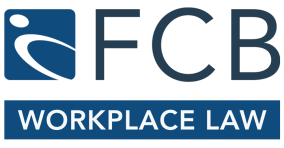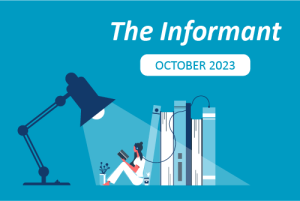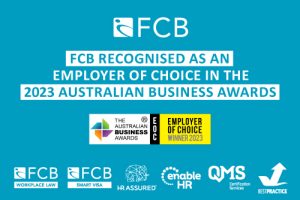Finding a better way: turning workplace investigations into positive experiences
November 4, 2015Oh no, not another investigation!
One of the key challenges employers face when conducting an investigation is convincing people that it will be fair and impartial. In theory, an investigation should never be prejudicial of itself – that is, it is a process designed to identify facts to support subsequent decisions (which may include disciplinary decisions) – outcomes shouldn’t be pre-judged and the process shouldn’t be a punishment of itself. However, in practice, the process can be personally confronting, no matter how well it is conducted or intentioned. And that emotion can extend not just to a person ‘under investigation’ but also to the people conducting the process and those potentially affected by decisions it triggers.
Sadly, the emotional responses people have can frequently push an investigation off track, away from the facts and into the territory of assumption, speculation and pre-judgment. For an employer, thought should always be given to the appropriate ‘pitch’ for an investigation, to reduce the risk it will become emotional, biased or punitive. Ultimately, if an investigation doesn’t meet these tests, then it may well create more problems than it solves. For one thing, it probably won’t stand up to scrutiny if its findings are tested in legal proceedings (eg, in an unfair dismissal process). But there are also other practical, legal and reputational risks. For example, poorly conducted investigations have been found to cause secondary harm for employees (eg, psychological conditions triggering compensation claims1) and/or create entirely new legal risks (eg, findings that an employer has taken ‘adverse action’ against any employee by undertaking a flawed investigation process2). Even worse, if you don’t get to the bottom of the situation you’re trying to investigate, you may miss out on crucial knowledge you need to ensure your organisational values and expectations are being adhered to.
There are some relatively simple solutions to these problems, but they are often missed in the panic that surrounds receipt of an allegation. For example, having access to an impartial, properly trained investigator at an early stage can ensure personal bias and emotion is removed (as well as ensuring the investigator applies robust methodology to the fact finding). Similarly, having policies and procedures in place that allow for less formal processes or labels to be used (such as ‘inquiries’ or ‘discussions’) can go a long way towards removing negative perceptions and assumptions. These are the types of considerations we recommend employers think about in advance, so that they are prepared when issues requiring investigation actually arise.
Knowing what you’re doing and why
Although it may seem obvious, one of the most frequently forgotten keys to a productive and appropriate investigation is to stay focused on what you’re doing and why. This requires consideration of a whole range of factors (and, sometimes, competing interests). For example:
- Are you trying to investigate events so you can get legal advice about what to do next, or do you want to be seen to be investigating independently?
If the former, you probably want a privileged process conducted through your lawyers, so the findings stay confidential and can’t be used against you. If the latter, you need to recognise that any skeletons in the cupboard may be exposed for all to see (which may or may not be what you want).
- Is the process you are conducting designed to get accurate information as quickly and efficiently as practicable?
Or is it structured in a particular way because you also have to comply with particular policies, procedures or industrial obligations that dictate how investigations are conducted? Sometimes, the best approach may be a pragmatic compromise between the two, but that depends on the type of issues you are dealing with and the potential consequences if the alleged facts or conduct are substantiated.
- Who are your stakeholders and what do they expect from the process?
A well conducted investigation coupled with appropriate responses to any adverse findings can be an amazing tool to promote trust and confidence within your teams and among your stakeholder groups. On the other hand, investigations that seem cursory or inappropriate can erode respect very quickly.
- What are the potential next steps if the facts are substantiated, unsubstantiated or disproved?
If a potential consequence is termination, can you prove misconduct on the balance of probabilities, ie. is your evidence strong enough? If the facts are unsubstantiated but you will still have stakeholders who expect action, will the investigation process itself support you if you want to move into secondary mediation or negotiation phase?
One of the most beneficial exercises a business can go through is to identify in advance the types of issues that are most likely to arise in their organisations and plan for the different models of investigation that might suit those scenarios. Doing this can be invaluable to ensure you are prepared to respond and act quickly and appropriately if and when issues arise.
Case in point: School bus driver suffers from inappropriate investigation
A few years ago, the Fair Work Commission awarded a school bus driver $12,841.29 because she was dismissed unfairly after a flawed misconduct investigation. The school didn’t actually employ the driver (and wasn’t responsible for sacking her) but the school’s investigation came into question during the legal proceedings (as did the process conducted by the bus company).
Somewhat embarrassingly for the school, the Commission made findings (‘on record’ in a publically available, published decision) that its investigation methodology was “seriously flawed” and that the Deputy Principal’s findings were ‘anything but conclusive’. For example, criticism was levelled at the process of interviewing students about an alleged incident in groups, rather than individually. This, the Commission indicated, allowed a ‘group narrative’ of the complaints to develop, with the potential to be ‘tainted by social norms within the group’. For context, the children were aged in the grade 6 and 7 range, it was alleged a physical incident had occurred between the driver and a student, and at least one parent had called in the police. With that in mind, the school’s primary objective would probably have been to err on the side of its duty of care to the children, rather than providing due process to the bus driver.
Also, to be fair, it wasn’t really the school’s job to ensure its investigation provided sufficient grounds for dismissal. That task should have been undertaken by the employer, and the real failure disclosed by the case was the apparent assumption by the bus company that the school’s findings could be relied upon to dismiss the employee for serious misconduct. Clearly they couldn’t. Far from being an independent investigator, the Deputy Principal who looked into the allegations had a vested (albeit completely legitimate) interest in ensuring the children were protected (and their parents appeased), in case the allegations were true. As such, his standard of proof may have been entirely different to the ‘balance of probabilities’ standard applied in unfair dismissal cases, and his interview methodology probably factored in the risk of frightening young children with scary questions in individual interviews and/or the commercial impact of taking a different approach. Objectively, it wasn’t so much that the investigation was flawed, rather that the school’s investigation wasn’t fit for the bus company’s purpose.
With all that in mind, before dismissing its driver summarily, the bus company possibly should have considered a range of alternatives: conducting its own investigation using different and appropriate methodology, finding a different way to remove the employee from the bus route (that didn’t rely on a finding of serious misconduct) or, potentially, acknowledging the matrix of legal, commercial and practical risks and seeking to mediate an acceptable alternative with the driver, the school and/or other stakeholders.
Do you need to run a workplace investigation? Would you like to talk to us about how to turn an investigation into a positive experience? Please call us on (02) 9922 5188 or email us at info@fcbgroup.com.au.
1 Goldman Sachs JBWere Services Pty Limited v Nikolich [2007] FCAFC 120.
2 Grant v State of Victoria (The Office of Public Prosecutions) (No.2) [2014] FCCA 991.

























